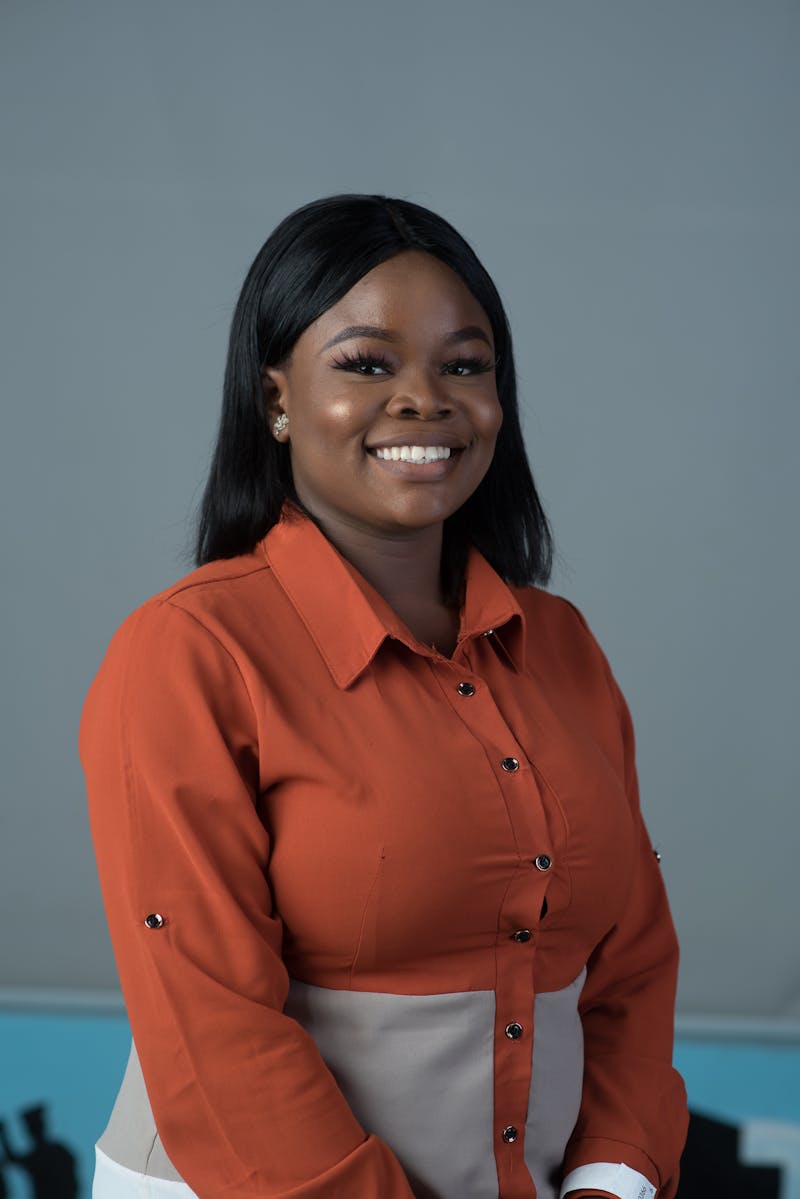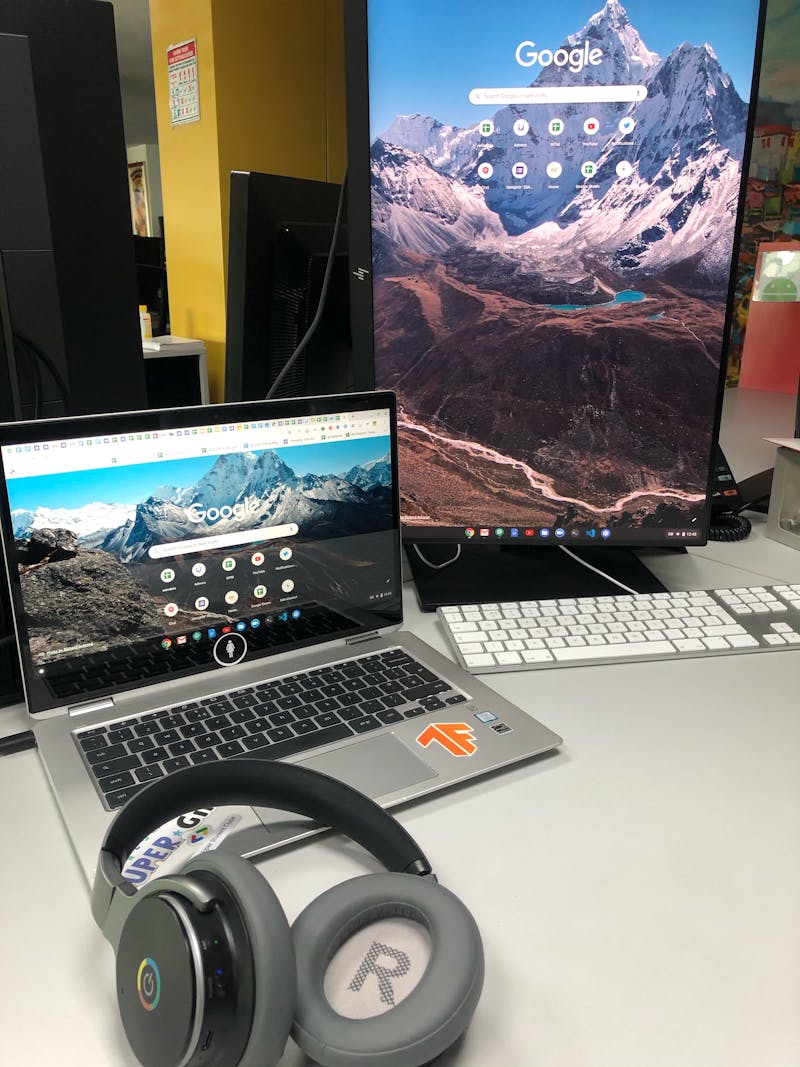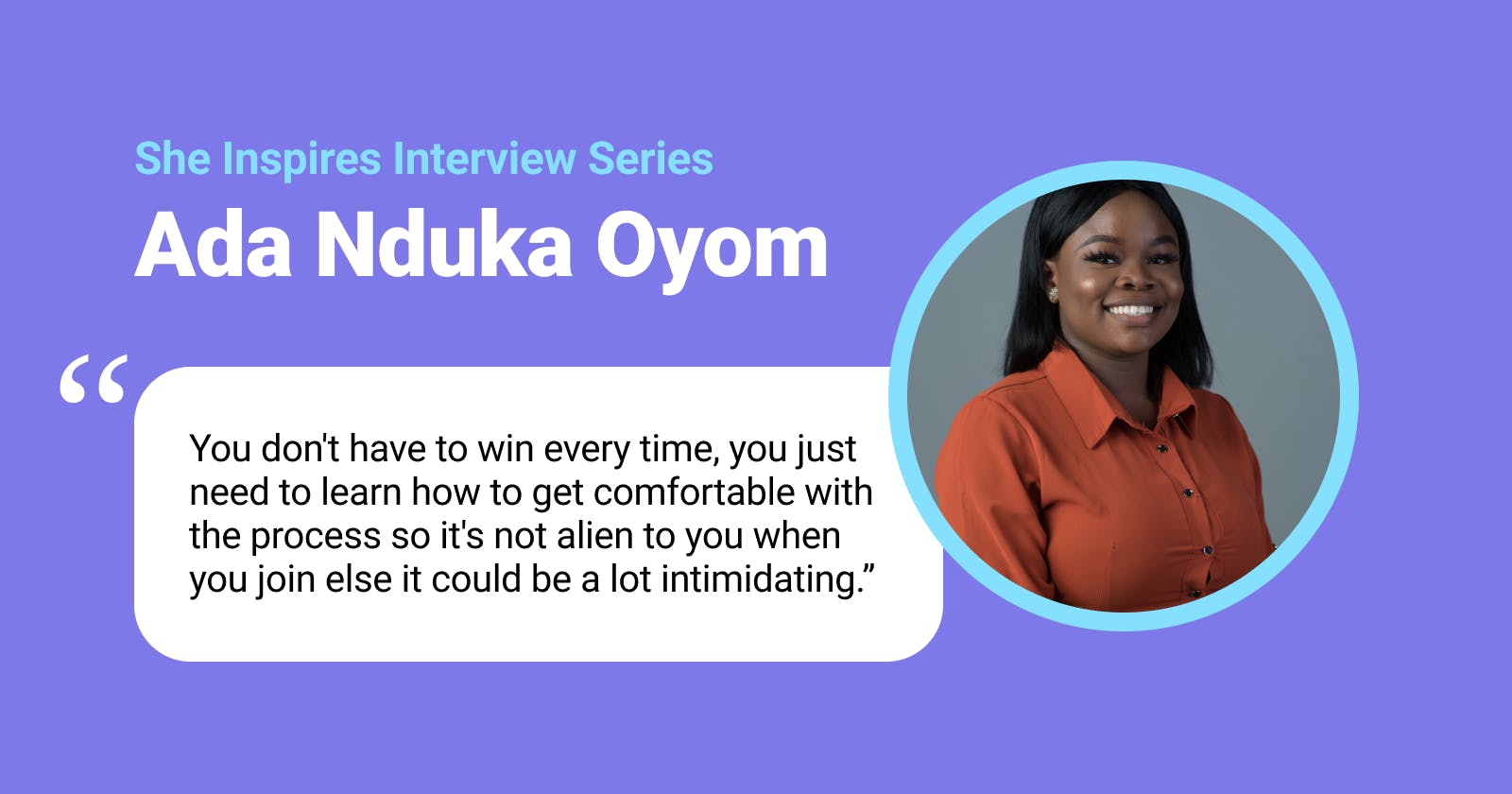You don't have to win every time, you just need to learn how to get comfortable with the process so it's not alien to you when you join else it could be a lot intimidating.
— Ada Nduka Oyom

I interview leading women developers every week and showcase their history, opinions, and advice on the tech. In case you missed our previous interviews, check out the series on Hashnode.
If this interview was helpful to you, please share it with your friends and colleagues and help others 🚀🙂.
Today, we will be interviewing Ada Nduka Oyom 👩💻 .
Ada is the Founder of She Code Africa (SCA), a non-profit organisation focused on celebrating and empowering young girls and women in Africa through technical skills, She founded SCA in 2016 and has since impacted over 1500 women members across 12 African countries while championing gender diversity in tech through it. She started out as a self-taught Software developer in the university and has since become involved in several other organisations within Africa’s technology sphere alongside her engagement as the Ecosystem community manager for Sub-saharan Africa at Google.
Ada is also actively involved in advocating for open source in Africa, hence co-founded ‘Open Source Community Africa,’ one of the largest community for open-source enthusiasts, advocates and experts across Africa. She is also the voice behind the tech podcast ‘Forloop pod’ where she hosts technical talks and interviews with experts and individuals on their tech journey, she volunteers as a technical and career mentor under several mentoring programs to help more people grow in tech and has been awarded as one of Ytech 100 honourees by the Future awards Africa, Top 50 TechWomen of Lagos by Tech Cabal and most recently nominated as a role model nominee in the Booking.com Tech Playmaker award.
Please tell us a little bit about yourself. How and when did you venture into tech?
Ada: I'm Ada Nduka Oyom, a Software developer and Developer relations expert. I'm also the founder of She Code Africa - a non-profit organisation focused on empowering and celebrating young girls and women in tech across Africa. Asides advocating for the girl child tech-ducation, I also actively advocate for open source within Africa through my co-founded organisation: Open source community Africa - a community for open-source advocates, experts, and enthusiasts. I started out in tech while in the university, during my second year (2014 precisely) after seeing a movie about interning at Google, I then joined an active tech club for about a year and participated in most of the events with my phone. From there, I became the lead for the Google developer group within my school, GDG UNN - now DSC UNN - where I led for two years before graduation. Joining these communities helped play a very active role in my career till date as it exposed me to a lot of amazing tools and technologies and even a network of friends in the industry who have had an influence in different ways to the success of my career
Can you briefly tell us about your job title?
Ada: Asides my organisation, I'm currently engaged with Google as it's Ecosystem community manager for sub-Saharan Africa. What this means is that I help manage the Google Developer Groups and Women Techmakers program within SSA. My day to day involves helping incorporate event/global campaigns focused on different tools, technologies from the different internal product teams like Cloud, TensorFlow, Firebase, Flutter, etc. while also co-championing its diversity and inclusion initiatives across our different chapters within SSA.
What difficulties have you faced on your way in tech? Have you ever felt like you were not treated as equal?
Ada: I don't think I have ever felt that way, thanks to my upbringing - being confident and outspoken on a lot of things - but I did face a lot of challenges starting out in this field.
Getting a laptop to help with my learning was war, I had to make do with the little I could learn on my low-end phone, but it was never enough as it got more frustrating than encouraging, I mean one minute I could be trying to practice using a language syntax without even running any program and next minute, my phone crashes! Let's not talk about how hard it was even getting a stable editor APK installed on my phone - it was so hard to find!
Getting an internship or even into a bootcamp program at the start was a lot more difficult for me as I came from a non-traditional background with very little programming experience and had to study twice as hard to make a good impression on the tests/interviews
If there’s a bias women face, why do you think it is still there, in the 21st century? What are some things people and organizations could do to change this?
Ada: Yes, there still is, and I think it's strong existence till date is as a result of how society has placed that conception as to what a woman can and cannot do. Lately, it's been really encouraging seeing companies or organisations take the step to fighting or reducing this, but it's more than just having an IWD event, it's more than just playing ally or advocate on social media. What are you doing as a company to help combat this? What policy are you putting in place to ensure that nursing moms don't have to make difficult decisions between family and career? What standards are you setting down to encourage that lady intern in your organisation to see prospects in not just stopping at C-level management? It's so much more that we have to do to provide a more healthier and equal space for women and other genders and this among several other reasons are what we hope to solve within Africa by our actions and activities at She Code Africa.
Recently, you announced your new role as Developer Relations Ecosystem Community Manager at Google, how long did it take you to arrive here, and what significant difficulties did you face along the way?
Ada: I started out my professional career in 2017, so approximately 2-3 years? But in between all of these years and even before I went into a full-time tech career, It took a lot, a lot of hard work - even though I'm not "there" yet. I already mentioned some of the difficulties I faced earlier, and if you add those to the challenges I had to overcome when I decided to fully specify in DevRel, it was a lot. Everything I know and practice now, I had to learn from a lot of trial and errors - my experience in community management, reading up really insightful long articles related to several techniques, best practices, etc. in DevRel, attending webinars from experienced individuals, etc. because here in Nigeria and across Africa, it's still like a new field/role gaining grounds so most times, there's no template or guideline to follow to address our own type of audience. I just kept pushing, practising, and preaching what I practised, I still do that.
We see that you work predominately in Developer Relations and Community Building, how did you decide to focus on this path?
Ada: I started out in tech as a Software developer, my plan was to go full-stack, climb the ladder into becoming an Engineering manager, LOL. I mean, if I chased that, I would get there, but I wasn't deriving a lot of Joy from just coding every day of my life. I already had quite an experience from community building/management, technical writing, public speaking, etc. plus my technical knowledge and got joy from doing each of these, one random day I decided to look up roles that could take in all these skills, voila! "Developer relations" was what I found. The first thing I said to myself was, "So you mean I could get paid for doing all of these things I loved to do? heck, sign me up!" I'm a big advocate of doing what you love, so I decided to fully specify in it since it had me practising my skills and also had its amazing perks as well
What advice do you have for a newbie or intermediate who dreams to work in Developer Relations?
Ada: This field is so diverse and can be really really daunting, knowing your primary audience are developers who can either be your enemies or friends - depending on your approach. A lot of people also have the misconception that you either have to be a tech "influencer" or super popular before getting in or worse off, being in DevRel makes you famous in the industry L.O.L! There are several roles under Developer relations, and they're all tasking! Irrespective of if your role is primarily focused on communities or products. To excel in this field, you have to be (at least) comfortable with your technical skills, giving public talks, troubleshooting, program management, working with other devs, good communication as you'll need that for your technical writing, and many other skills. Oh, another part no one would tell you is the fact that ;
It'll keep you up on your feet for hours - Literally standing cause you get to interface with people every now and then, especially at events
Lots of traveling sounds fun, yeah, but when you don't get to spend much time in your own house or country, you begin to miss a lot - but hey! It's a perk; you get to experience other parts of the world DevRel is a lot of fun and impactful role if you really LOVE and get familiar with the field.
How long have you been in tech, and what word will describe your experience so far?
Ada: 5 years now, and it's been EXCITING! I chose that word because it encompasses all the feelings and stages I've gone through and grown through, from tough to confusing, mind blown, impractical, wild, tough again, victory, etc. Looking back at everything now, I'm proud of how far I've come, but I'm definitely just starting out.
You founded She Code Africa, what inspired this, and what's it all about?
Ada: In September 2016, during the world programmers day, I noticed very few African women in tech were among "random" developers who were being celebrated and knowing so many amazing women creating impact in their communities, I wanted to tell their story. So I started She Code Africa (SCA) as an initiative to celebrate and tell the stories of women in tech across Africa and over time, we noticed a lot of women wanted a community within SCA to be able to interact with each other and also the women we get to spotlight. Over time, what started as an initiative grew into an organisation and community to empower young girls and women with technical skills while also telling their stories. Our vision is an "Africa where women are equally represented across all career roles and levels in technology" We want women who identify in tech be able to scale up their skills, we want the next generation of girls/women to know it's possible to break barriers within this field and in STEM largely.
You also co-founded Open Source Community Africa, what inspired this, and how has been the journey?
Ada: I and my co-founder saw the need to start a community for open-source lovers because there really wasn't an active one all along. We also saw the need to bring this to life cause OSS discussions within the African tech space wasn't an active topic. At first, it was hard getting people to listen to us, but slowly, our activities helped change the narrative, and we don't plan on stopping. Our goal is to change the narrative of Africans being the next billion users to the next billion creators. It's quite an exciting ecosystem over here, and I'm really proud of how far we have pushed this - I mean every one of us involved in growing the tech ecosystem here
Imposter syndrome is one problem developers face especially newbies, what is your experience with imposter syndrome, how did you manage yours, and what advice do you have for anyone facing this currently?
Ada: NEWS FLASH: It never goes away; you only get more experienced in identifying and dealing with it. Everyone at different points in their careers has/will experience(d) it. I put up a tweet to get experience from others who've gone through it, a lot of insightful responses that would help anyone currently facing it here:
Rejection emails is another thing that motivates imposter syndrome and depression amongst developers, especially intermediates. How did you manage this effectively during your "job-hunting" days?
Ada: Quite simple: I knew my worth. Knowing your worth means having (most of) the skills for that role and being confident about it. This makes it easier to get over as that helps you understand if company A doesn't, another company will. Besides, I also see it as a learning opportunity, to retrace my steps and know where to improve on, both skill-wise and interview wise.
What advice would you give to aspiring programmers who look forward to working for companies like Google?
Ada: Never settle for being average. Working in companies like this involves working with some of the best minds, so you should already be comfortable aiming for the top, You don't have to win every time, you just need to learn how to get comfortable with the process so it's not alien to you when you join else it could be a lot intimidating, next thing - Imposter syndrome Good thing is everyone's willing to help out whenever you need help, so you never get to stay stuck on an issue for long.
What are your favorite programming tools?
Ada: I don't have a favourite but Lately, I'm starting to love Wakatime - it shows me the number of hours I spend weekly writing code on my PC. Been using for a long while now but never saw the need until recently.
What does your development environment look like? Could you please share a photo? :)

My workstation at the office
Finally, what would be your message to women trying to get into technology?
Ada: YOU are your biggest competition. If you really can think it, then you definitely can do it. There are lots of other women in this field, rooting for you all over the world, go for it!
Thanks for taking out time to read this interview. 👋
This series is all about talking to the awesome women in tech, understanding the current health of the tech industry, and inspiring other women to become better. If you want to share your story, please reach out to me on Hashnode.
Did you find Ada's story useful and inspiring?
Write down your thoughts in the comments section below and don't forget to share this interview. You can also follow Hashnode on Twitter to stay up-to-date with our future. She Inspires interviews.
See you next time and keep trailblazing. 💪💙

